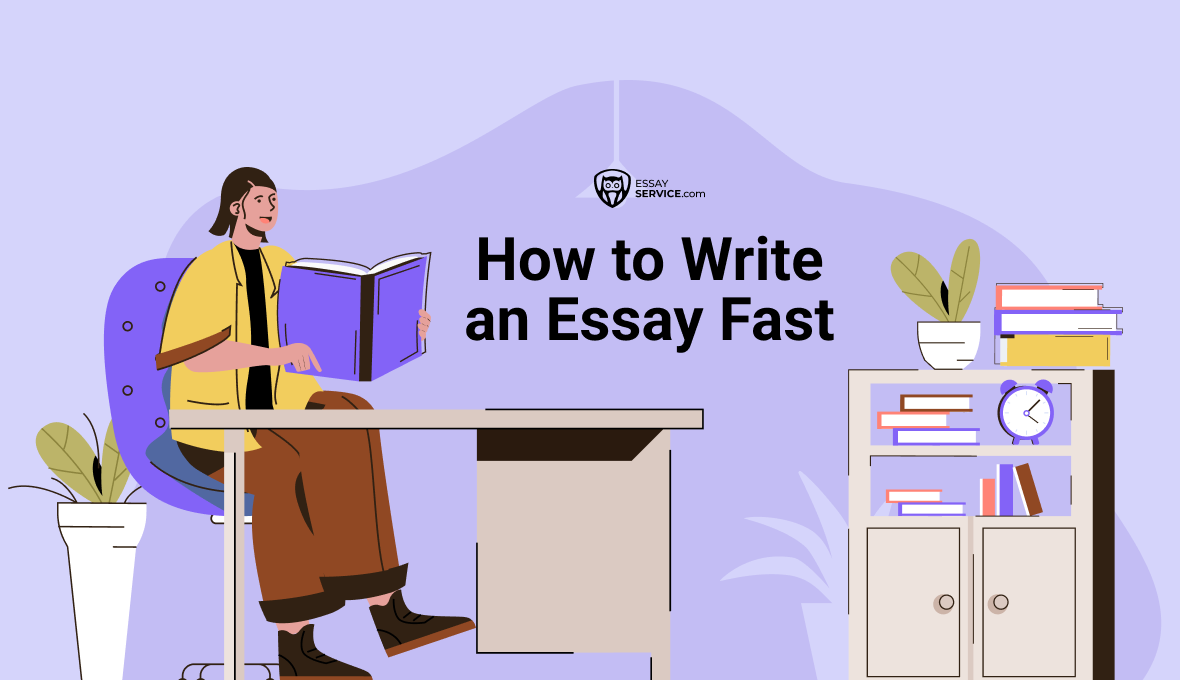
How to Write a 1000 Words Essay with an Example
Writing 1000 words essays can feel overwhelming at first, but once you break it down, it becomes much simpler. Let's go over the key facts to keep in mind:
- Length: A 1000-word essay is typically 2-4 pages, depending on formatting (font size, spacing).
- Structure: Like most essays, it includes an introduction, body paragraphs, and a conclusion.
- Focus: Clarity and conciseness are essential. Every word should contribute to the main point.
- Planning: An outline is crucial for organizing thoughts and ensuring you stay on track.
- Editing: Always leave time for proofreading and revising to polish the essay.
If you're still finding it tough after reading this, don't worry. EssayService is a perfect solution for those looking for expert help with any type of essay. From organizing ideas to refining the final product, we can make sure your essay hits all the right notes.
How Long is a 1000 Words Essay?
The number of pages for a 1000-word essay can vary depending on the formatting. Here's a simple breakdown:
But why does formatting matter so much? Well, fonts and spacing affect how text fills the page. A larger font or more space between lines naturally increases the page count, while smaller fonts and tighter spacing reduce it.
Different universities or instructors might also have specific guidelines, like aiming for a set number of words per page (typically between 250 and 300). So, it's always best to check their requirements before finalizing your essay.
How to Write a 1000 Words Essay?
Now that you know how long a 1000 word essay is, the next step is writing it.
Start with a clear plan. Before writing, think about your topic and create an outline. This helps organize your ideas and keeps you focused as you write. Break your essay into three main parts: the introduction, body paragraphs, and conclusion.
- Introduction: Set the stage. Introduce your topic, and make sure to grab the reader's attention from the beginning.
- Body paragraphs: Start discussing the details. Each paragraph should focus on one main idea, with examples or evidence to support it.
- Conclusion: Wrap things up by summarizing your main points and offering any final thoughts.
Once you've written everything down, don't forget to revise and proofread. This final step can make a big difference, helping you spot mistakes and improve clarity. We'll go over each section in more detail below.
Types of 1000 Word Essays
A 1000 word essay can take many forms, depending on the purpose and topic. Each type has its own structure and focus, but the goal is always to explore the subject in depth while staying clear and concise. Here are some common types:
- Narrative Essay: Tells a story or personal experience. This type is usually written in the first person and focuses on engaging the reader with vivid details and a clear storyline.
- Descriptive Essay: Paints a picture with words. You'll focus on describing a person, place, or event in detail, using sensory language to bring the subject to life.
- Expository Essay: Explains a topic in a straightforward way. It's all about providing information, facts, and examples without taking a personal stance.
- Persuasive Essay: Aims to convince the reader of a particular viewpoint. You'll present arguments and evidence to support your position, trying to persuade the reader to agree with you.
- Argumentative Essay: Similar to a persuasive essay, but with more emphasis on presenting both sides of an issue before taking a clear stance.

How to Structure a 1000 Words Essay?
Once you know the type of essay you're writing, the next step is structuring it. A solid structure helps keep your essay clear and easy to follow. Typically, a 1000 word essay outline is divided into three parts: introduction, body, and conclusion.
Introduction (100-200 words)
Your introduction sets the tone for the rest of your 1000 word essay, so it's important to make it engaging and straightforward. Start with a hook to grab your reader's attention. This could be an interesting fact, a question, or a bold statement related to your topic.
After your hook, provide some background information. This helps the reader understand the context of your essay. Keep it brief and relevant—no need to go too deep here.
Finally, end the introduction with your thesis statement. This is a clear, concise sentence that outlines the main point or argument of your essay. The thesis gives direction to the rest of your writing, so make sure it's specific and easy to understand.
Body (800 words)
The body of your essay is where the real depth comes in. Each paragraph should contribute to the overall argument or narrative you're building. Remember to keep the word count in mind—don't let any single point take over.
- Topic sentence: Start each paragraph with a clear topic sentence. This gives the reader an idea of what the paragraph will cover.
- Supporting evidence: Follow up with details, examples, or evidence to back up your point. Depending on your essay type, this could be data, quotes, or personal experiences.
- Analysis: After presenting your evidence, explain how it supports your argument. Make sure you're connecting the dots for the reader, not just listing information.
- Transition to next point: Smoothly transition to the next paragraph to maintain flow. Use connecting words or phrases that guide the reader through your essay without abrupt changes.
Conclusion (100-200 words)
The conclusion is your chance to wrap everything up and leave a lasting impression. It should summarize the key points made in your essay without introducing any new information.
Start by briefly restating your thesis, but in different words. This reinforces the main idea and shows how your body paragraphs support it. Then, summarize the main points you've covered, tying everything together.
Finally, end with a closing thought or reflection. This could be a call to action, a final insight, or a broader implication of your argument. Keep it concise and impactful, making sure the reader walks away with a clear understanding of your essay's message.
How to Format a 1000 Word Essay?
Formatting plays a key role in making your 1000 words essay look professional and easy to read. Here are the key things to keep in mind:
- Font and Size: Use a standard, readable font like Times New Roman, Arial, or Calibri. Typically, a 12-point font size is recommended.
- Spacing: Most essays require either single or double spacing. Make sure to check your assignment guidelines, as double spacing is often preferred in academic writing.
- Margins: Set your margins to 1 inch (2.54 cm) on all sides. This is standard for most essay formats.
- Title Page: Depending on your instructor's requirements, you might need a title page. If required, include your essay title, your name, course information, and the date.
- Headings and Subheadings: If your essay is long or covers several sections, using headings and subheadings can help break up the content. However, keep them simple and aligned with the formatting guidelines.
- Citations: Use the correct citation style (APA, MLA, Chicago, etc.) if you're referencing external sources.
What Does 1000 Words Look Like? 1000 Word Essay Example
To get a better sense of how 1000 words come together, it's helpful to see an example. Understanding the layout and flow of a 1000-word essay can guide your writing process. In this section, we'll break down a sample essay to illustrate what 1000 words look like in action.
The Bottom Line
Writing a 1000-word essay doesn't have to be overwhelming. Here's a quick checklist to guide you through the process:
- Select something interesting and relevant.
- Gather information and resources to support your ideas.
- Organize your thoughts into an introduction, body, and conclusion.
- Write the introduction.
- Develop body paragraphs.
- Summarize your key points.
- Revise and edit.
If you find yourself struggling at any point, our EssayService team can help with any type of essay. We're always ready to create a strong, well-structured essay for you!
Frequently asked questions
How Many Words Should an Introduction Be in a 1000 Words Essay?
In a 1000-word essay, the introduction should generally be about 100-200 words. This allows you to effectively introduce your topic, provide necessary background information, and present your thesis statement clearly.
How Long Does It Take to Write 1000 Words Essay?
Writing a 1000-word essay usually takes between 2 to 4 hours. The time needed can vary based on your familiarity with the topic, your research skills, and your writing speed. Planning and outlining beforehand can help streamline the process.
How Many Paragraphs Will a 1000 Words Essay Be?
A typical 1000-word essay is usually composed of around 4 to 6 paragraphs. This includes an introduction, 2 to 4 body paragraphs, and a conclusion. Each paragraph should focus on a specific point that supports your overall thesis.
New posts to your inbox!
Your submission has been received!



.webp)
